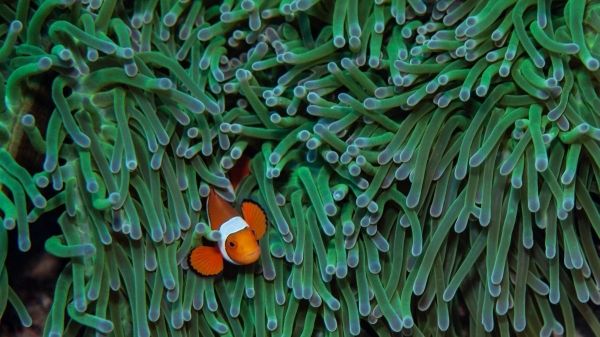The beloved anemone fish popularized by the movies “Finding Nemo” and “Finding Dory” don’t have the genetic capacity to adapt to rapid changes in their environment, according to a new study by France’s National Centre for Scientific Research (CNRS), Woods Hole Oceanographic Institution (WHOI) and colleagues. Their findings published Nov. 27, 2019, in the journal Ecology Letters.
An international team of researchers monitored clownfish in the lagoons of Kimbe Bay—a biodiversity hot spot in Papua New Guinea—for more than a decade. Using genetic analysis of the population’s DNA, the researchers were able to calculate their potential to adapt to habitat changes and renew their population. They found that big families of clownfish that extended over many generations were linked to high-quality habitats, rather than to shared genes.
“The findings reported here were made possible by a huge sampling and DNA sequencing effort that had not been attempted for any marine species before,” says WHOI biologist Simon Thorrold, a coauthor of the paper. “The biggest surprise to us was also the most troubling: conservation efforts cannot rely on genetic adaptation to protect clownfish from the effects of climate change. It seems that Nemo won’t be able to save himself.”
Read more at Woods Hole Oceanographic Institution
Photo: Clownfish on their anemone in the lagoon around Kimbe Island in Papua New Guinea. (Photo by Simon Thorrold, Woods Hole Oceanographic Institution)


